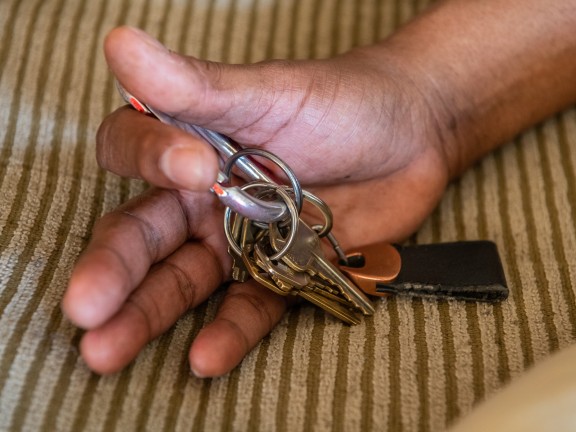Housing First: How & Why It Works

Housing First is an evidence-based program model defined by adherence to 38 distinct fidelity measures. However, most “Housing First'' programs in operation today are actually using a less stringent low-barrier approach to housing. In fact, criticisms of the Housing First model are largely rooted in confusion between the two. As one might guess, programs straying from fidelity to the evidenced-based model cannot anticipate achieving comparable success rates, such as 85-90% housing retention after five years. In this session, presenters will assist attendees with examining the intricacies of how a high fidelity Housing First program actually operates. Presenters will invite attendees to assess their agency’s current fidelity to the model, explore common deviations from fidelity among low-barrier housing programs, and identify ways to improve service outcomes through aligning service provision more closely with evidence-based practice. Attendees will explore the importance of participant self-determination, interdisciplinary staff, community inclusion, supported employment, and integrated care all as parts of the Housing First model. Ample time will be allotted for Q&A.
Schedule
1:45-2:00 PM | Virtual training room opens
2:00-2:10 PM | Welcome & introductions
2:10-2:35 PM | Housing First vs low-barrier approach; 5 key principles & fidelity measures
2:35-2:55 PM | Housing Choice and Structure
2:55-3:15 PM | Separation of Housing and Services
3:15-3:25 PM | Break
3:25-3:45 PM | Service Philosophy
3:45-4:05 PM | Service Array
4:05-4:20 PM | Program Structure
4:20-4:30 PM | “The Pathway”
4:30-4:45 PM | Q&A
Learning objectives
When attendees return to the workplace, they will be able to:
- Differentiate between a high-fidelity Housing First model and a low-barrier approach to housing
- Explain the distinct but collaborative roles of clinical and housing department staff
- Identify the importance of community inclusion, supported employment, and integrated care in the Housing First model
Target Audience: Social service providers and helping professionals working with individuals experiencing homelessness, policy-makers, government workers, agency administrators, CoC leads, or anyone invested in ending homelessness in their community.
Social Work Practice Level: This course covers intermediate level material
Course Delivery Format: Live webinar
Interactivity: This course will offer real-time polling and 15 minutes of Q&A time
Social Work Continuing Education Credit: 2.5 CE Credits*
Fees: $30 general registration; additional $5 for registration with social work CE credit
Session Facilitators:
Andrew Spiers, LSW
Director of Training and Technical Assistance
Housing First University, a program of Pathways to Housing PA
Andrew Spiers, MSS, LSW (he/him), is the Director of Training and Technical Assistance for Pathways to Housing PA’s Housing First University. Andrew joined Pathways in early 2018 and served as an Assistant Team Leader and Team Leader before launching Housing First University in October 2019. Andrew holds a Master of Social Service from Bryn Mawr College’s Graduate School of Social Work and Social Research, where he concentrated in Community Practice, Policy, & Advocacy. He has taught Human Services and Sociology courses as an adjunct professor at Harcum College and conducted trainings and workshops all over the country on Housing First, harm reduction, and affirming care for LGBTQ+ communities.
Ryan Villagran, LSW
Training Specialist
Pathways to Housing PA
Ryan Villagran, LSW (they/them) joined Housing First University in June 2021 as a Training Specialist. Ryan holds a Master of Social Work from Temple University with a concentration in Communities & Policy. Their clinical background includes delivering psychiatric rehabilitation services in the mental health recovery model at a Community Integrated Recovery Center. Ryan also developed and coordinated a training program in a university setting for social workers serving transitional-aged youth and later taught a Human Behavior in the Social Environment course for graduate social work students. Ryan is involved in organizing efforts around ending mass incarceration and believes in the power of our collective imagination to dream of a better future centered around the most vulnerable members of our community.